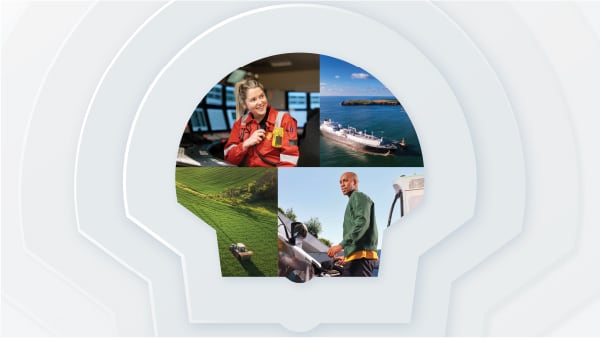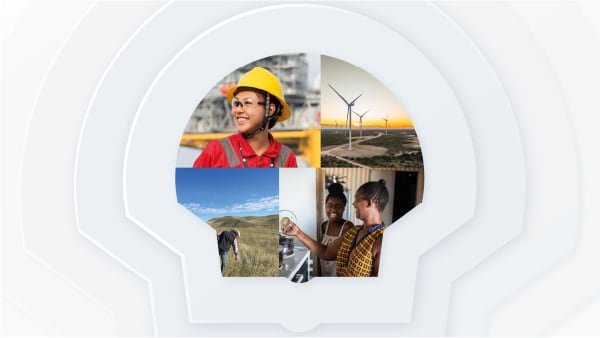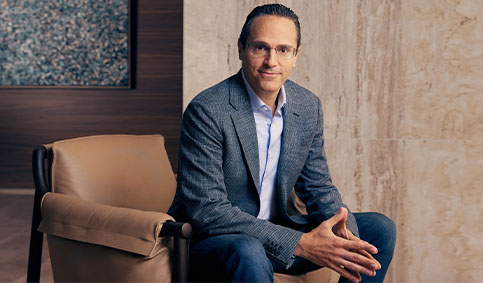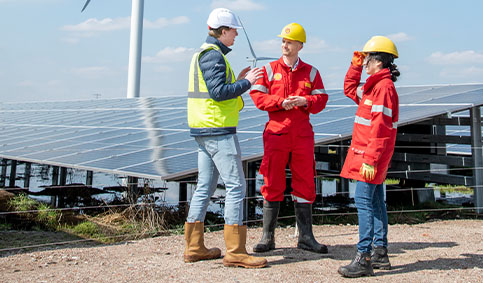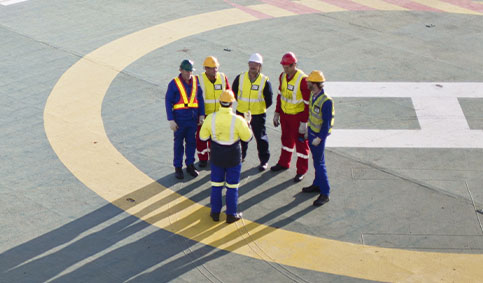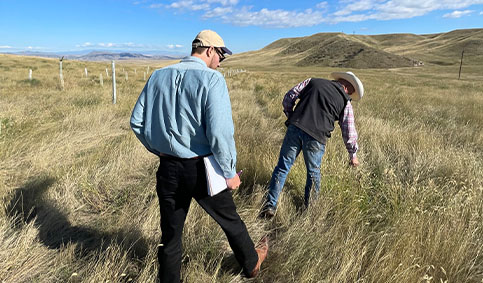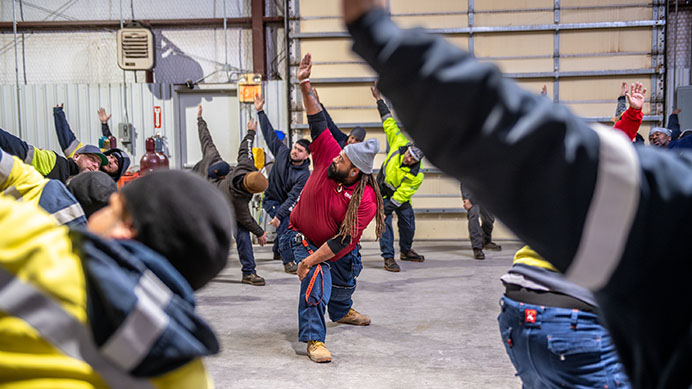Worker welfare
We work with our partners and peers to include worker welfare in industry standards, guidance and best practice. This helps raise expectations and levels of consistency across the industry. Our approach is based on the 10 Building Responsibly Worker Welfare Principles.
We continue to take steps to improve our approach, and that of our industry, to worker welfare. In 2023, we worked closely with Ipieca to co-create a programme to improve ethical recruitment and worker engagement in the oil and gas industry, which will be piloted in 2024.
In 2023, we worked with bp, Equinor and Ørsted to improve the rights and welfare of migrant workers in our supply chains. As a first step, the companies drafted a set of principles and guidelines in consultation with suppliers and civil society organisations. The aim is to improve accommodation and transport for migrant workers; adopt the principle that the employer, not the worker, should pay the cost of recruitment; and implement effective grievance mechanisms. The next step, starting in 2024, is to pilot the principles and guidelines in fabrication yards in Singapore.
An important part of our activities is to encourage workers to speak freely about injustices or poor facilities, anonymously if they wish. At our Shell Energy and Chemicals Park Singapore, we conducted a survey of more than 400 workers employed by 15 contractor partners, which was held over four days in seven languages. The initiative resulted in improvements to dormitories and rest areas and the construction of safe bridges and walkways.
During the year, our senior leadership visited worksites and accommodation in Singapore, Oman, Qatar and many other countries to engage with and listen to contract workers. We have found that site visits by senior Shell leadership help create a culture of trust, care and inclusion, especially among migrant workers employed by our partner companies.
Two of the issues raised by contractor workers at some sites, and in our industry as a whole, are payment of recruitment fees and the late payment of salaries. In 2023, we remedied late payment of contractor workers’ salaries in Nigeria. We continue to work on both issues.
In 2023, senior executives from Shell’s 23 major global contractors joined Shell executives in Norway for our annual Contractor Safety Leadership workshop. Areas of discussion were worker welfare and human rights, mental health, and technology solutions for safer work at the frontline.
Also in 2023, leadership teams from 25 Shell joint ventures and companies newly acquired by Shell met in the Netherlands to discuss topics such as worker welfare and to affirm support for industry efforts on worker welfare. We believe that the welfare of our workers is vital to enable them to perform safely at their best.
Our efforts to improve worker welfare are under continuous development. We continue to work on our salient human rights issues, including labour rights in the workplace. Our aim is to be transparent about our progress as well as the challenges we face in our operations and supply chain.
Read more about worker welfare at www.shell.com/sustainability/communities/worker-welfare.

